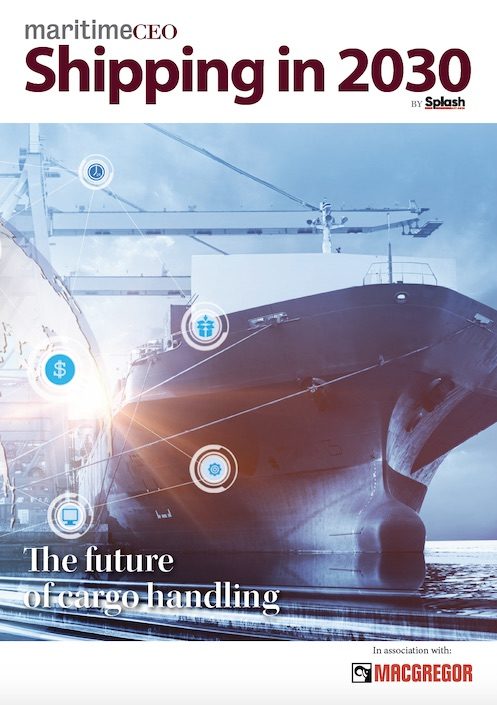MacGregor: Owners want reduced cost of ownership

All week Splash will be publishing articles from our just published magazine looking at the maritime world in 2030, conducted in association with cargo handling specialist MacGregor. Today we hear from a former aerospace engineer on how shipping can become more efficient.
Michel van Roozendaal is a man in a hurry, often frustrated at the slow pace of the industry he’s involved in. An aerospace engineer by training, van Roozendaal has plenty of ideas on how shipping ought to develop and harness technology.
The president of MacGregor is well aware of what is upper most in his clients’ minds – cost efficient solutions are in demand across shipping.
Owners want reduced cost of ownership but also an improved envelope of operations
“Owners want reduced cost of ownership but also an improved envelope of operations,” van Roozendaal says.
The MacGregor boss is proud of his company’s “leading edge” in innovation and, importantly, of the reliability of his products and services. He is also fully aware that, today, customers seek to simplify marine equipment management, and look to suppliers to provide data-based solutions that optimise performance and maintenance through-life.
“Operational efficiency is key,” van Roozendaal says. “We see customers are operating in an environment where sustainability is a driver for their business so we can help with optimising journeys, increasing boxes carried and mixing breakbulk types.”
In terms of transforming the face of shipping, van Roozendaal is cautious in the short-term.
The drivers for any real transformation from a client’s point of view are linked to onboard safety, sustainability, operational reliability and reduced costs, according to the MacGregor boss.
Shipping needs a high-level aspiration and to not be afraid of failure through trying new things
At the same time, “ships are becoming more sophisticated,” van Roozendaal says. Digital technologies and data management are now differentiators for suppliers, he says, with systems becoming more autonomous, and condition monitoring and predictive maintenance both important to maximising availability and controlling costs. This makes MacGregor an integral link in ‘the maritime supply chain’, rather than simply an equipment supplier.
The MacGregor boss also rails against the conservative nature of the industry, something that is in part caused by a lack of regulatory clarity.
“Shipping needs a high-level aspiration and to not be afraid of failure through trying new things,” argues van Roozendaal.
One way to move beyond its traditional mindset is to embrace many of the remote ways of working that have accelerated during the coronavirus pandemic. “Remote control, remote maintenance, remote diagnostics, all these have become more commonplace this year, adding a machine learning environment to shipping,” says van Roozendaal, going on to explain how his company has carried out Factory Acceptance Tests and repairs at sea this year using cameras and augmented reality.
On the hot topic of autonomous vessels, the MacGregor executive feels this will be a long journey, which will start by automating some of the subsystems.
Inefficiencies in the whole cargo flow of world trade can be resolved by greater use of autonomous technology, van Roozendaal points out, adding that data-based solutions can be used to generate revenues as well as manage costs, for example by optimising carrying capacity.
Overall, van Roozendaal’s message in terms of how cargo flow and load handling will develop in the coming decade is all about evolution rather than revolution.
“In reality,” he says, “it will be incremental rather than about breakthroughs. Ships trade over a lifespan, meaning that developments take place within a 20-year timeframe.”
However, with 2030 targets in mind, solutions to lower CO2 footprint will dominate research and development this decade, van Roozendaal predicts, meaning for things like automation technologies shipping will need to look to harness ideas from other industries.
To access the full Shipping in 2030 magazine, click here.

